Introduction
“Business Casual Men: The Best 5 Components” Discover the perfect balance of professionalism and comfort with our comprehensive guide.
In today’s ever-changing work environment, the concept of business casual has become a staple in many professional settings. Although this style can be difficult to navigate, comprehending the details can have a substantial influence on one’s professional reputation.
This comprehensive guide will offer practical advice and style hints to help you dress appropriately and confidently for various business scenarios, providing detailed insights into business casual attire for men.
Understanding Business Casual Attire for Men | What is Business Casual?
The term “Business Casual” refers to a dress code that strikes a balance between the requirements normally associated with business attire and a more relaxed approach that is nevertheless professional. In contrast to more rigid formal wear, business casual attire has the ability to allow for some degree of personal expression while still keeping a look that is polished and professional.
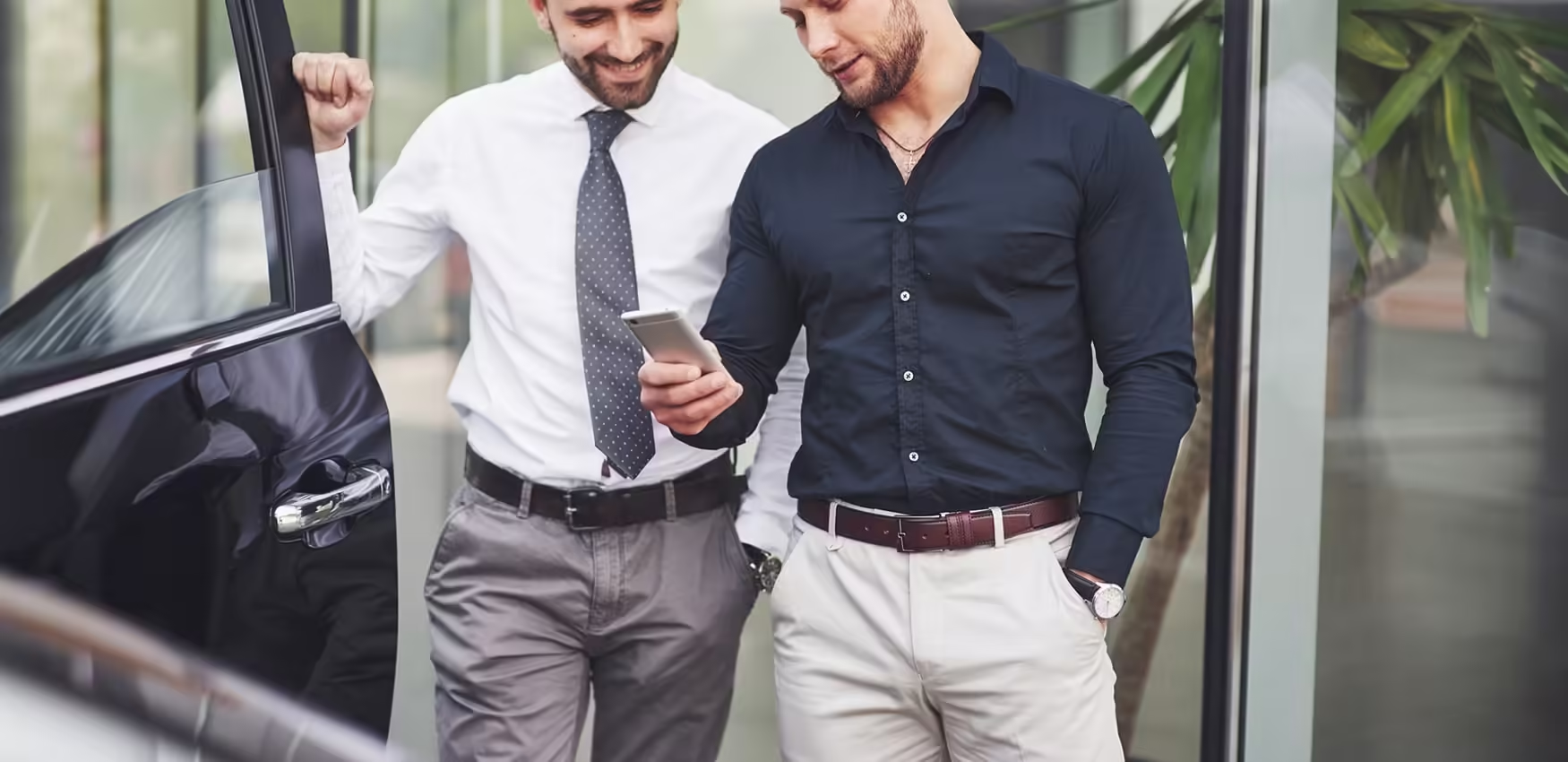
Key Components of Business Casual Outfits for Men | Business Casual Outfit Ideas
Shirts
When it comes to business casual dress, the shirt is the essential component. Choose shirts with collars, especially in solid colors or designs that are not highly recognizable.
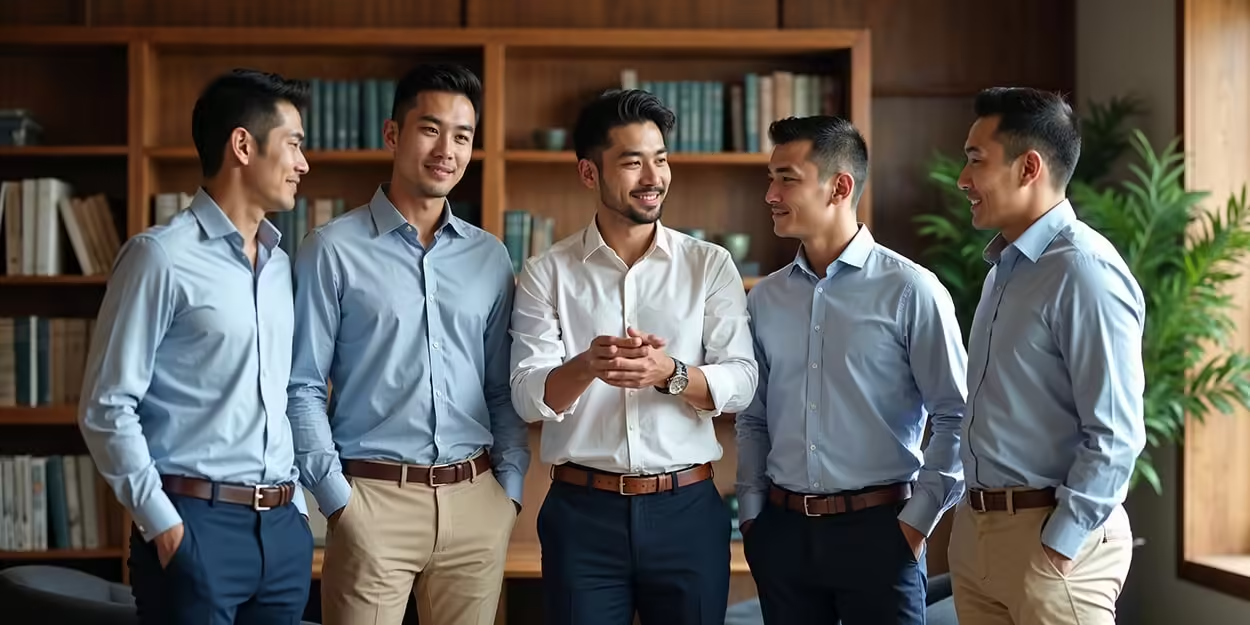
Oxford shirts and dress shirts with neutral tones, such as white, light blue, or pastel tints, are the best options. It is possible to achieve a more laid-back appearance by wearing button-down shirts with checkered or striped patterns, provided that they are not overly flashy.
Trousers
Chinos and dress pants are the most appropriate choices for business casual attire. Choose trousers in neutral tones such as navy, grey, or beige.
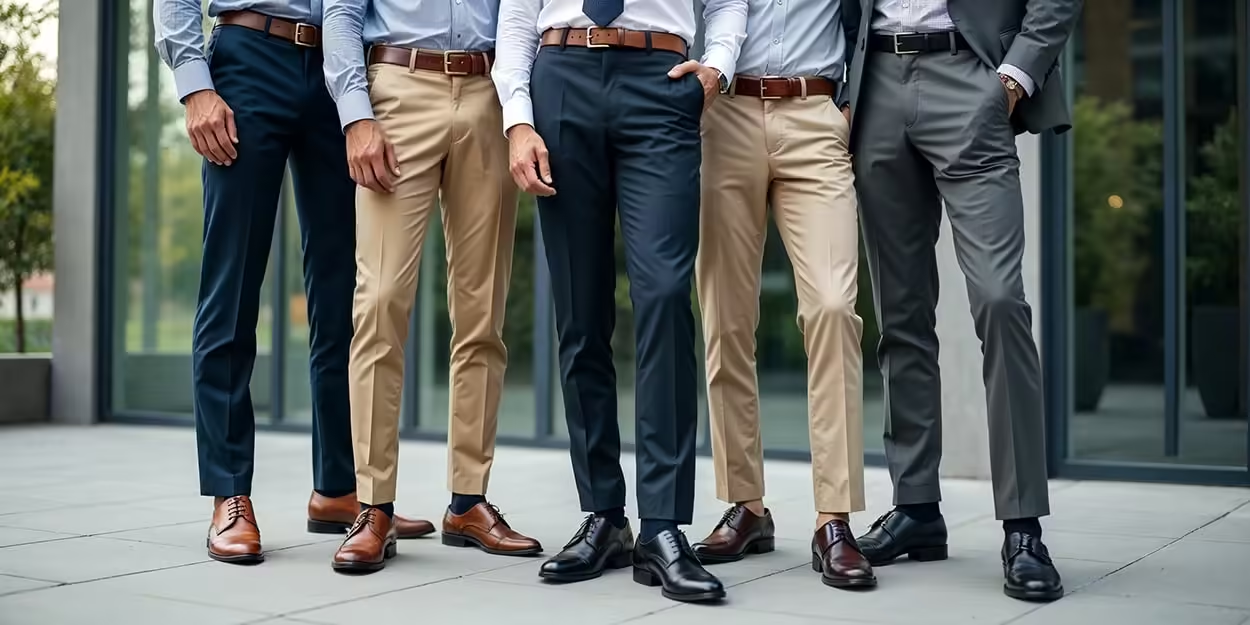
Make sure they’re well-fitted but comfortable, and avoid too tight or loose fits.
Blazers and Sport Coats
While not always necessary, a blazer or sport coat can elevate a business casual outfit.
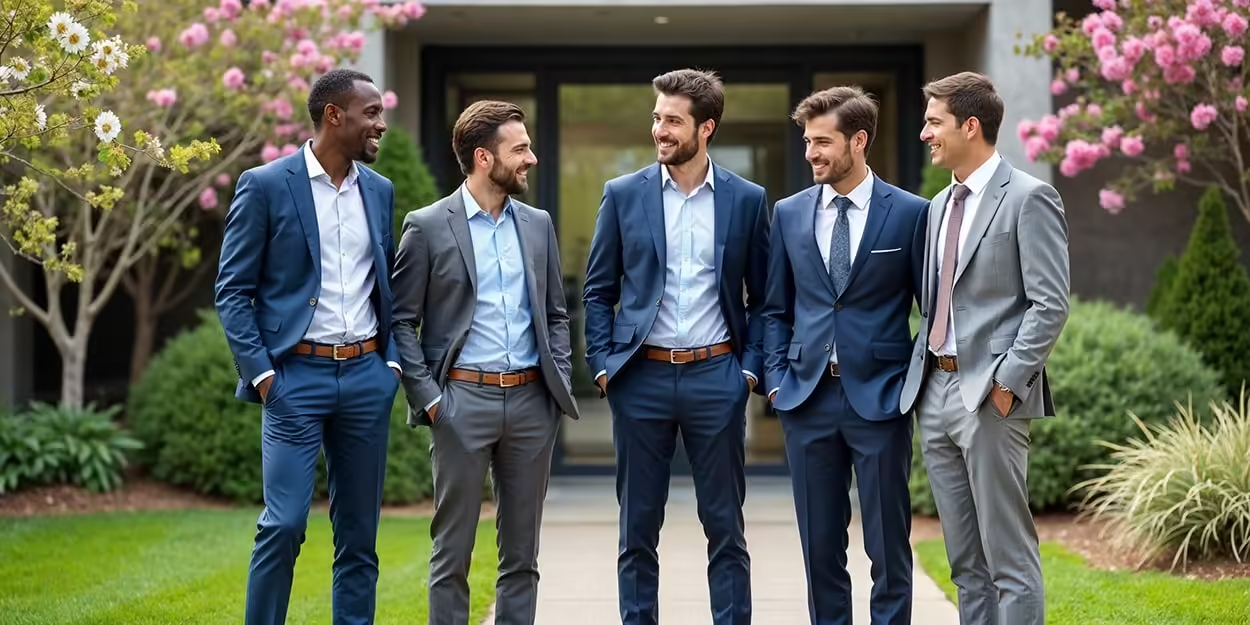
Opt for tailored blazers in dark colors for a more formal touch or lighter shades for a relaxed feel. Ensure the blazer complements your trousers and shirt for a cohesive look.
Footwear
Loafers, derby shoes, or monk straps are excellent choices for business casual footwear. Stick to leather or suede in classic colors like brown or black.
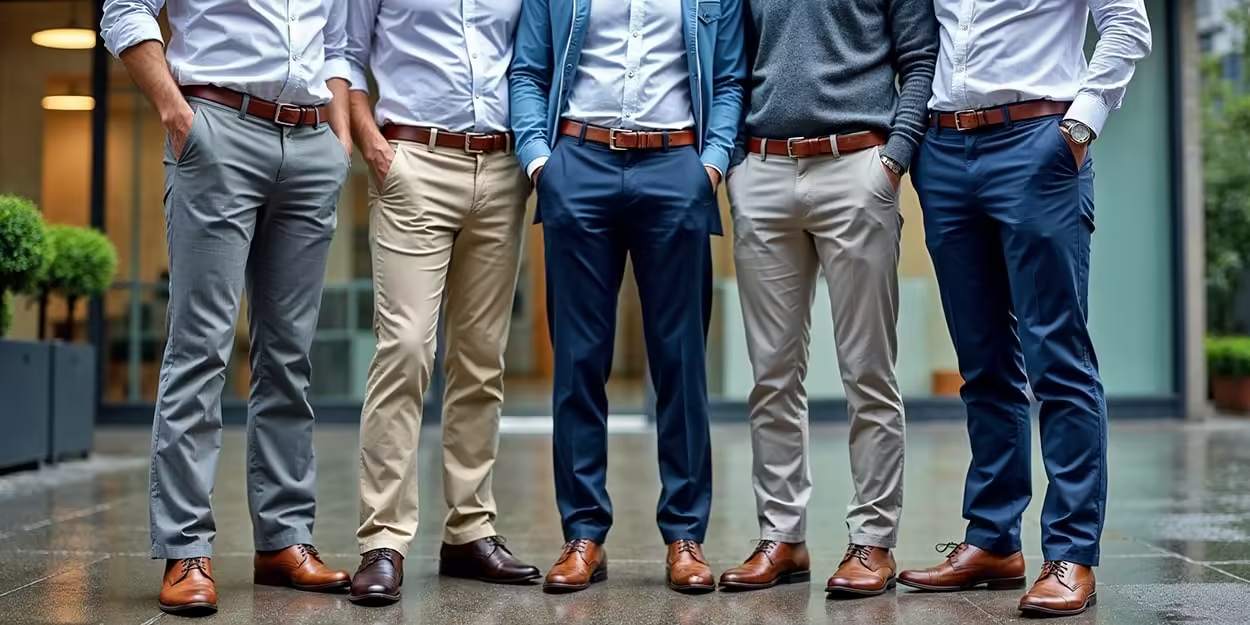
Avoid overly casual shoes such as sneakers or sandals, as they do not align with the business casual aesthetic.
Accessories
Accessories should be minimal yet effective. A simple belt matching your shoes, a classic wristwatch, and subtle ties can enhance your look.
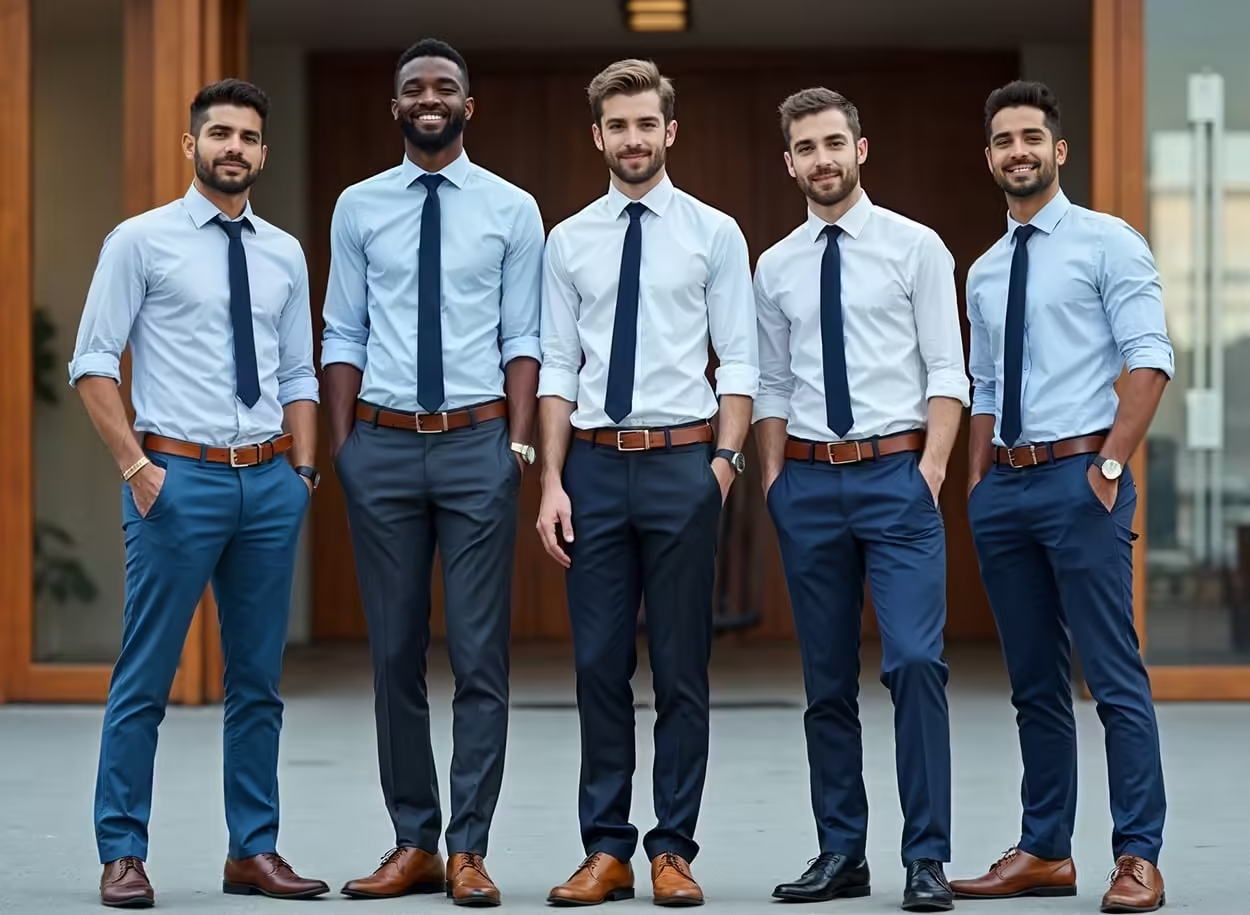
Avoid overly flashy accessories or large, ornate jewelry.
Business Casual Attire for Various Professional Settings
Business casual attire can vary depending on the professional environment you find yourself in. Being aware of these subtle differences can assist you in curating a wardrobe that perfectly aligns with the unique requirements of your professional environment.
Corporate Offices
In a corporate setting, business casual attire should be polished and professional. Stick to neutral colors and classic cuts. Opt for a well-fitted blazer paired with chinos or dress pants. Keep your shirt crisp and unwrinkled, and choose leather shoes that are both comfortable and elegant.
Creative Workspaces
Creative environments often offer more flexibility with business casual attire. Here, you can incorporate trendy elements into your wardrobe while still maintaining a professional appearance. Consider adding patterned shirts or casual blazers. Smart casual shoes like loafers or desert boots can complete the look.
Client Meetings and Networking Events
For client meetings and networking events, it is crucial to present yourself as both professional and approachable. Choose well-tailored trousers and a collared shirt, and consider adding a blazer if the setting demands a slightly more formal approach. Polished shoes and minimal accessories will help maintain a sophisticated appearance.
Seasonal Adjustments for Business Casual
Adapting your business casual wardrobe to seasonal changes is essential for both comfort and style.
Summer Business Casual
In the summer, opt for lightweight fabrics such as linen or cotton. Choose light-colored shirts and breathable trousers. Loafers or dress shoes in lighter hues will keep your look fresh and seasonally appropriate.
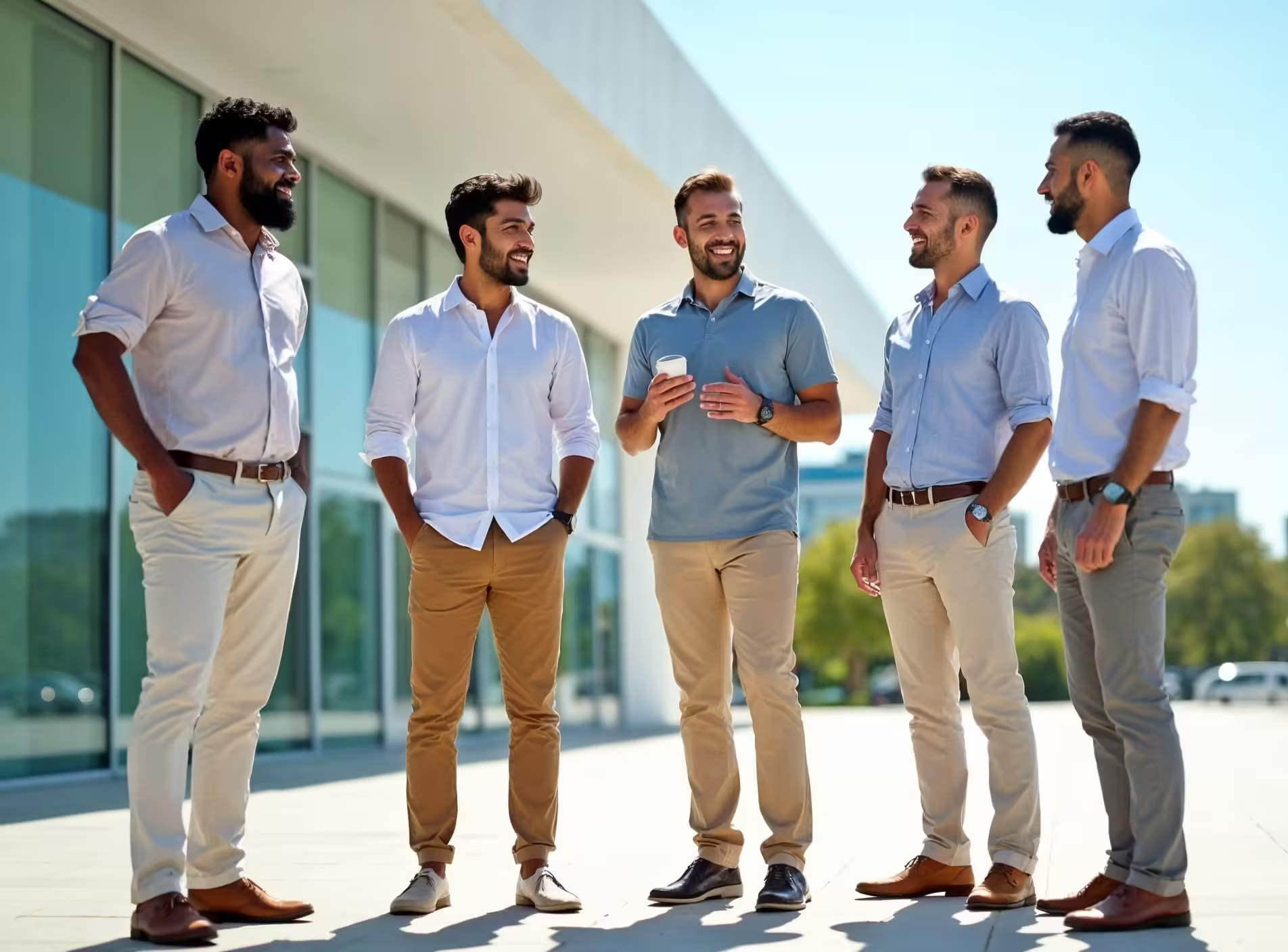
Winter Business Casual
During colder months, layering becomes crucial. Incorporate sweaters or cardigans under your blazer.
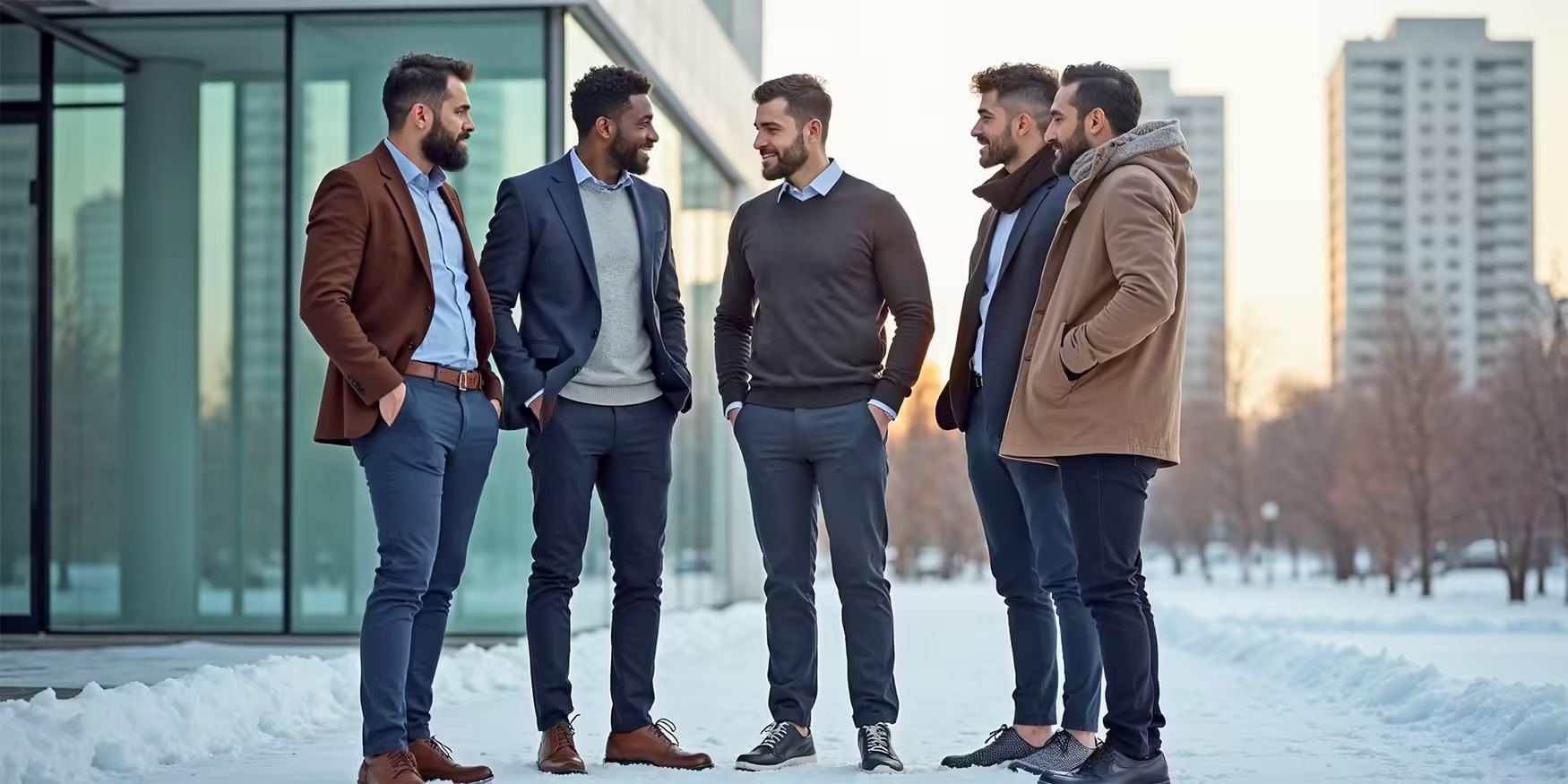
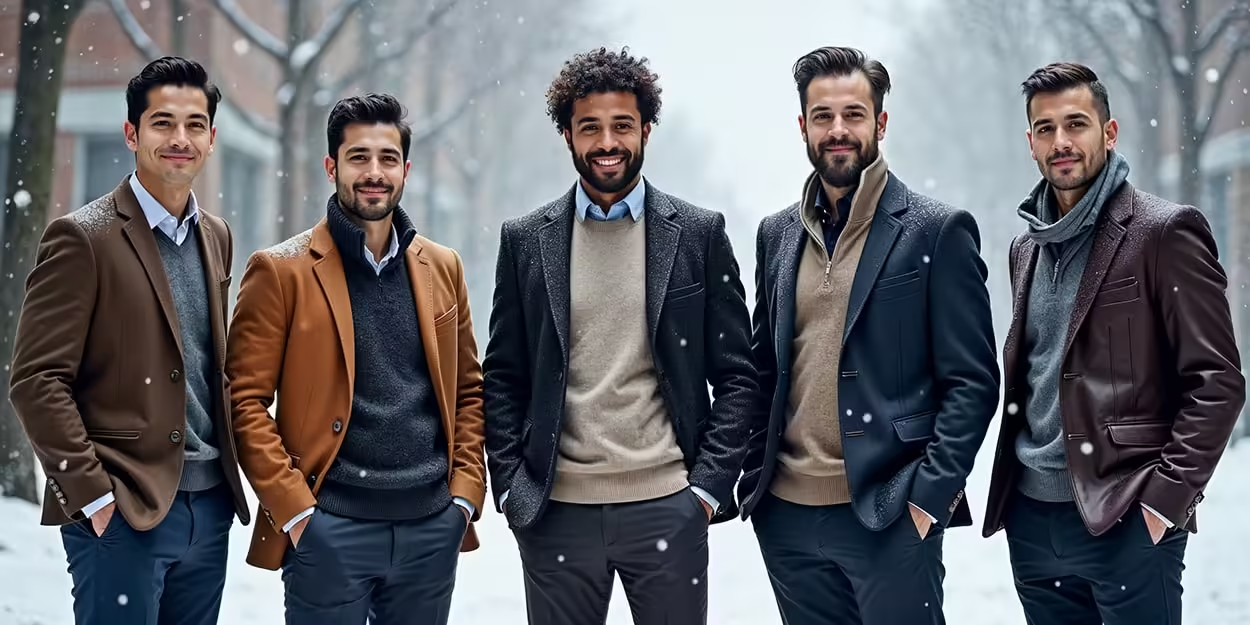
Choose darker, richer tones and ensure your trousers and shoes provide warmth. Leather boots or dress shoes in darker shades can also complement your winter business casual attire.
Common Mistakes to Avoid
Avoiding common pitfalls can ensure your business casual look remains effective and professional.
- Overdressing: Avoid dressing too formally for a business casual setting. Unless the company specifies otherwise, a suit and tie may be too formal.
- Underdressing: Conversely, avoid dressing too casually. Jeans and t-shirts are not appropriate for most business casual environments.
- Ignoring Fit: Ensure all garments fit well. Poorly fitting clothing can detract from your professional appearance.
- Excessive Patterns: While patterns can add interest, too many can be distracting. Opt for subtle patterns and balance them with solid colors.
Conclusion
When it comes to nailing the perfect business casual look for men, finding the right balance between professionalism and personal style is key. By following the advice in this article, you’ll be able to navigate different professional settings with confidence, always presenting yourself in a polished and appropriate manner.
